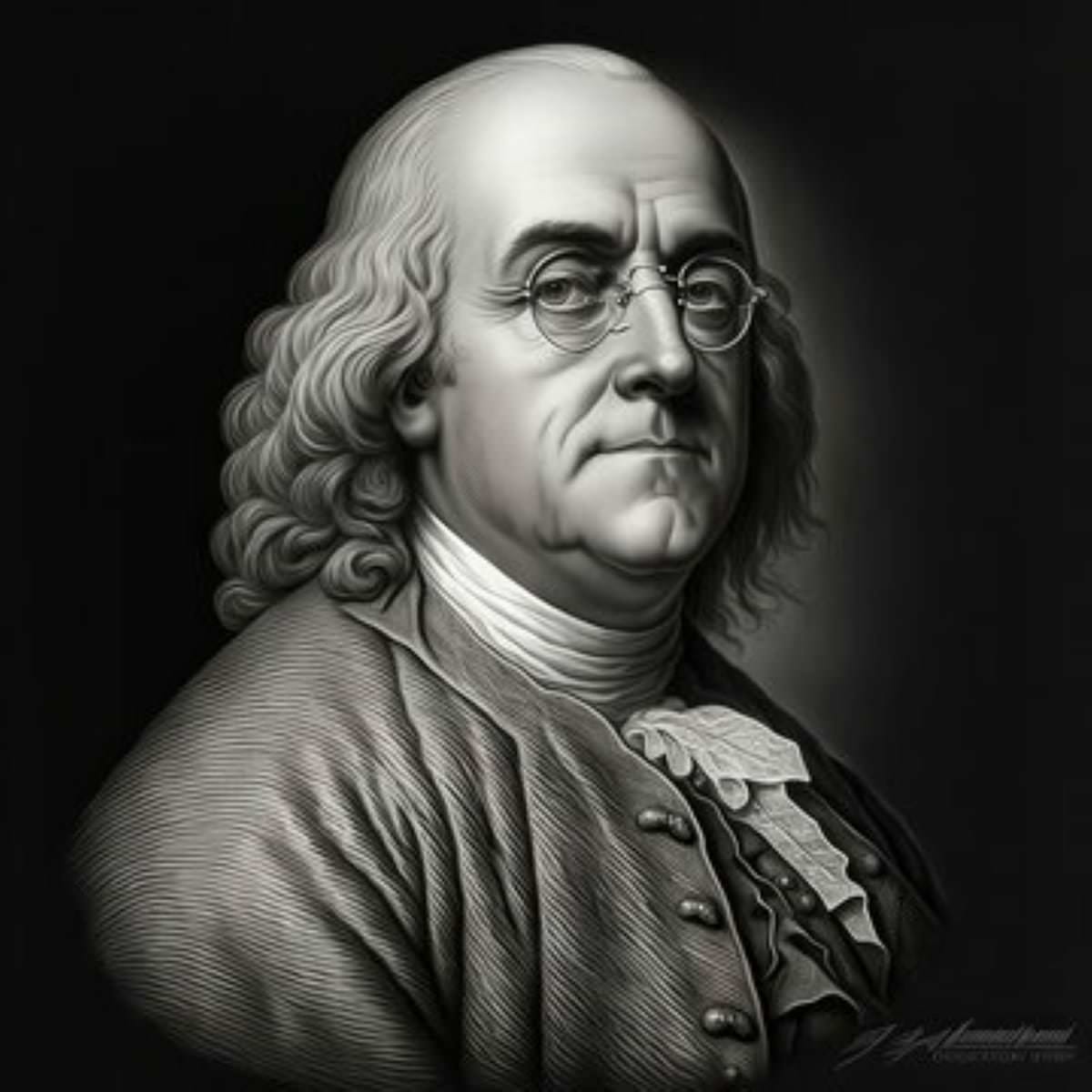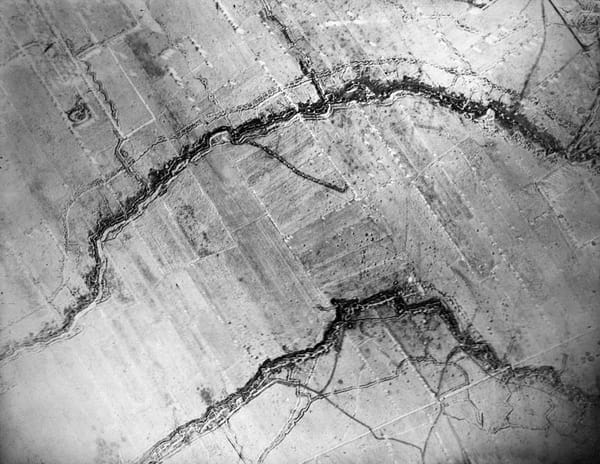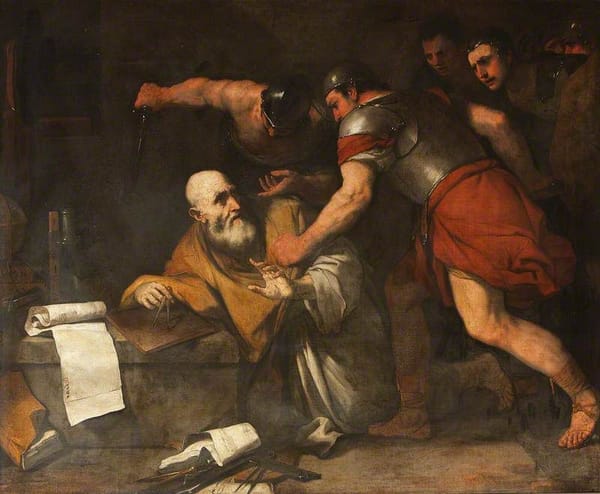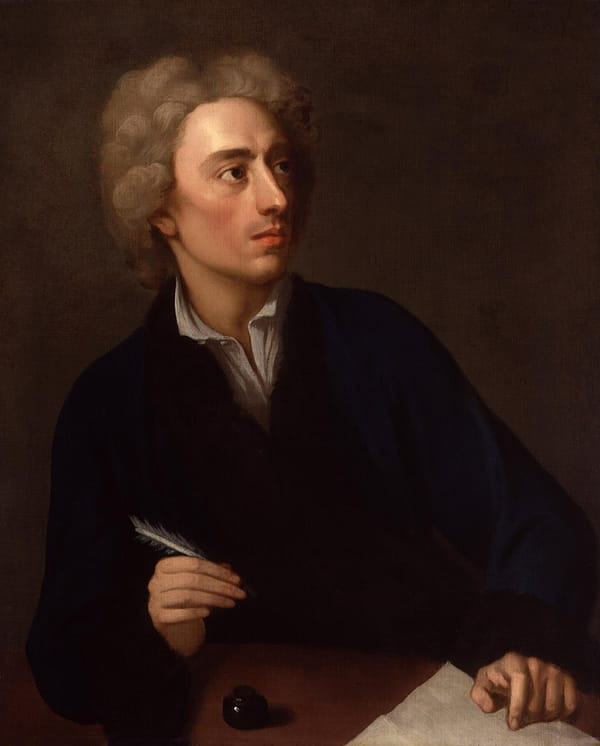Benjamin Franklin

In the first chapter of Benjamin Franklin's Autobiography, he writes to his son about his life experiences. He writes about his father, Josiah Franklin, and that he was the fifteenth child out of seventeen and about some of his childhood adventures, like the adventure of the dock.
My favorite recollection of his past was how he and some of his friends built a dock at the edge of a pond. They saw that one day that the edge of the pond was a quagmire, so they took some stones from a building site nearby and used them for their dock.
Ben's brother and master, James Franklin, is arrested for writing political opinions that did not agree with the government. He is then no longer allowed to print the newspaper under his name and resorts to printing it under Ben's name.
Wanting to “assert his freedom” Ben tries to go to another printer to work, but his brother tells all the other printers in the nearby area not to accept him.
Ben goes to New York to try to find a job, and goes to the print shop in that town to be hired, but is turned down by the owner. The printer had a son in Philadelphia whose helper had just died and was searching for help. Thus, Ben decides to go to Philadelphia.
On the way to Philadelphia, Ben saves a Dutch man from drowning, gets sick with a fever, and gets stuck on Long Island. Arriving in Philadelphia, he was dirty, hungry, and had little money.
In this chapter of his autobiography, Ben met different people who either helped him or hindered him.
The people who tried to help Benjamin Franklin were:
The Philadelphia printer and his father: who helped him get employed and took care of him while he was unemployed.
Benjamin's new boss: Employed him even though he was a boy.
His father: gave him permission to go to Philadelphia.
The Governor of Philadelphia: tried to get Ben's father to allow the young man to set up a business.
The Quaker Lady: Advised Ben to stay away from two young ladies, who turned out to be thieves and prostitutes.
The people who hindered Benjamin Franklin were:
Collins: Got drunk very often on Ben's money and had fights with him
The two prostitutes: were bad influences on Benjamin Franklin.
Ben's Brother: will not forgive Ben for leaving Boston and ruining his business.
When Ben arrives in Philadelphia, he gives the governor the letter from his father and when the man finds out that Ben's dad was not going to help him set up as a printer, he said he would do it himself. Ben tells us that he was a fool to listen to the governor because he would learn later that the man was not to be trusted.
He then is asked to give the governor a list of what he needs to start a printer's office, and he gladly provides the man with the information. He is then asked if he wouldn't mind going to England to look over the products that were needed to create a printer's shop. Ben accepts, but continues to work for Keimer until he goes.
Ben tells us about his friends who loved reading, and about how he met with them many times to read together and discuss books. Occasionally, he and his friends would read their poetry to each other, and they would criticize it and improve it. One of Ben's friends, Ralph, who planned to become a poet, decided to go with him to England. Ben finds good friends who like the things he likes, and thus he could have a good sort of fun with them.
Finally, Ben sets off on his adventure to England together with his friend, Ralph, who was going to England to “establish a correspondence, and obtain goods to sell on commission.”
Upon reaching the English Channel, Ben is allowed by the Captain of the ship to search the letters that were sent by the Governor on the boat, but he does not find any that are addressed to him. Benjamin Franklin had been tricked!
He finds his friend, Mr. Denham, and tells him about the incident. His friend tells him all about the man's character and says that it was very probable for the Governor not to have sent any letter of credit to Ben. He says that the Governor often did not keep his promises and that Ben should not have trusted him.
Ben got employed at a printer's office, and he and Ralph spent the rest of his money on plays and other entertainment until Ben had no more money! They barely scraped a living off Ben's job. He printed a small pamphlet, which his boss disliked due to its principles but increased his esteem for his worker and attracted the attention of other literary friends of no importance.
His friend, Ralph, courting a lady and to support their future, he moved to a town and became a teacher. He left the lady in Ben's care when he was away from London, and Ben (foolishly) attempted to become familiar with the lady, but she told Ralph, and they parted ways. Ben was better off without Ralph, who was constantly borrowing money but never actually giving any back.
Ben then moved to another printer's office called Watts's. There he was the only workman who did not drink beer, just water. The workmen who were with him were surprised because he was stronger than them, and they called him the Water American. Ben is promoted and is a good influence on some workmen, who stopped drinking beer so much.
He groups up with his friend Mr. Denham to go to Philadelphia, and Ben quits printing and accompanies his friend as his clerk. He trusts Mr. Denham knowing that he was a trustworthy man who paid his debts.
His 18-month experience in England summarized by him:
“I had by no means improved my fortune; but I had picked up some very ingenious acquaintance, whose conversation was of great advantage to me; and I had read considerably.”
Ben and Mr. Denham set up, but both of them get sick. Ben was about to die, but he survived, but his boss was not so fortunate, and he died leaving Ben some money in his will. Ben then sought work and found it at Keimer's for very high pay for teaching printing to Keimer's apprentices. Ben was loved and respected because he was good at printing and even as a merchant clerk. At Keimer's he helps one of the staff, Meredith, to stop drinking so much; he was not only a good teacher, but he was a good influence.
After Ben taught Keimer's staff to print, he quits after having a terrible quarrel with his boss, who wished to pay him less now that he had fulfilled his purpose. He and Meredith decide to have a partnership and to start a new print office. Ben gets hired again by Keimer because he needed him to print paper money and makes the first copperplate press in America.
Ben was not a Christian, but believed that “truth, sincerity and integrity in dealings between man and man were of the utmost importance to the felicity of life”
Ben and Meredith leave Keimer's service and start up their Printer Office in Philadelphia. Ben founded a club of mutual improvement called the Junto, in which they discussed Morals, Politics, or Natural Philosophy.
Ben manages to pay off his debt to Vernon, but the unthinkable happens. Meredith's father does not have enough money to back Ben and Meredith's business. Two friends, William Coleman and Robert Grace, say that they will pay the rest of the money required to keep the business running if Ben no longer partnered with Meredith.
Meredith and Ben part ways, and Ben is now the sole owner of the print office. Ben then writes a pamphlet on how important paper money was to the common people and gained a small job printing some. He has a new rival; Harry, whom he had trained while working at Keimer sets up a print office, but after some time, gives it up. Then Ben gets married to Miss Reed.
Ben is a good influence on young people who read his autobiography. His friend, Mr. Abel James, says about Ben's autobiography that “it almost insensibly leads the youth into the resolution of endeavoring to become as good and eminent as the journalist.”
Ben is a good role model to people who read his book. Mr. Benjamin Vaughan, tries to convince Ben to continue to write his autobiography, telling him to think of how it helps people who are searching for a model by which they can improve their lives. He also says that the publication of the book would prove to Englishmen that the American people were a people of great virtues.
Ben tried to complete his goal of being virtuous by trying every week to uphold one of the virtues from this list that he compiled:
1. TEMPERANCE. Eat not to dullness; drink not to elevation.
2. SILENCE. Speak not but what may benefit others or yourself; avoid trifling conversation.
3. ORDER. Let all your things have their places; let each part of your business have its time.
4. RESOLUTION. Resolve to perform what you ought; perform without fail what you resolve.
5. FRUGALITY. Make no expense but to do good for others or yourself; i.e., waste nothing.
6. INDUSTRY. Lose no time; be always employ'd in something useful; cut off all unnecessary actions.
7. SINCERITY. Use no hurtful deceit; think innocently and justly, and, if you speak, speak accordingly.
8. JUSTICE. Wrong none by doing injuries, or omitting the benefits that are your duty.
9. MODERATION. Avoid ext reams; forbear resenting injuries so much as you think they deserve.
10. CLEANLINESS. Tolerate no uncleanliness in body, cloths, or habitation.
11. TRANQUILITY. Be not disturbed at trifles, or at accidents common or unavoidable.
12. CHASTITY. Rarely use venery but for health or offspring, never for dullness, weakness, or the injury of your own or another's peace or reputation.
13. HUMILITY. Imitate Jesus and Socrates.
Ben still believed that God existed and prayed in the afternoons for wisdom from Him. He had a desire to be wise and sought it from the source of wisdom, God.
Ben accepted the correction of others and tried to become better. A Quaker friend had told Ben that he was often seen as proud in conversation, and Ben tried to fix this by adding HUMILITY to his list, he tried more to listen than to speak, and he tried to be less rude and overpowering.
Benjamin is a successful writer and businessman. He made an almanac that sold almost 10,000 copies per year. He also wanted to help people improve. Ben put proverbs and other things into the almanac because it was one of the main books the common people bought.
He would rather not slander anyone. Ben did not include any personal abuse in his newspaper. The young printer was firm and stuck to his decision. Even though his publishers wished for him to include the things, he would rather not have in his paper, Ben stuck firm and did not comply with printing things that could harm people.
Ben thinks that women can do hard things too. He tells us a story about how the widow of a man with whom he had made a partnership had taken over the business when her husband died and had managed it better than he did.
Ben is diligent in learning and learns new things that could improve his life. He spent a long-time learning French, Italian, and even Spanish. He makes friends; Ben became friends with his brother again.
Ben cares for orphans. He donated money to a preacher to help some orphans get a home in Georgia. He cared for his people. Ben wished to create a college and a militia. Ben was concerned about his city. When a war between Spain, France, and England occurred, he wrote a pamphlet and gave a speech encouraging the creation of a group dedicated to defending the safety of Philadelphia.
Ben was considered a good leader. He was elected to be a colonel of the Philadelphia regiment. He was very humble; Ben did not accept this office but suggested someone else. Ben was also an inventor. He invented an open stove and it became popular.
Ben wanted the best for his people. He and some friends founded the University of Philadelphia. He was thought to be a good leader. Ben was elected to be one of the trustees for the academy. He was elected legislator of the Assembly.
Ben was a good counselor. He proposed a good strategy to deal with the Indians; he kept them away from all alcoholic beverages before the deal was made.
He wished to help the Philadelphians. He promoted his friend's scheme to create a hospital and convinced the government to pave a path in the marketplace so that people would not get dirty on their shoes when buying provisions.
Ben was ingenious. He invented the idea of having one gutter in the middle of a road instead of two on each side.
Ben wanted the best for his country. He suggested to the New York Assembly to begin a union of all the colonies under one government. He gives amazing advice; when Mr. Morris, the new governor of Philadelphia, came to him for advice on how to have a comfortable career, he was told by Ben that he should try not disputing.
He wants to help his country; He helps Mr. Quincy to get ten thousand pounds from the Assembly for an attack on Crown Point and gets wagons and horses to supply General Braddock’s army.
He wanted the British to win the war; Ben supplied them with food.
Ben was known as a good leader. He was appointed to take charge over the North-Western frontier to build forts of defense. He was also appointed Colonel.
Ben was inventive and liked to experiment with electricity. He was interested in drawing lightning from clouds and wrote about this subject.
Ben wanted the best for his people. He involved himself in public affairs as a member of the Pennsylvania Assembly, and had disputes with the governor and the proprietor over taxation and defense issues.
Ben is curious and open to learning. He likes finding out about the customs of different denominations and learns from them.
He is known to be a good counselor. Captain Denny asked him for his advice on how to have a good term as governor, telling Ben that some of his friends in England had said that he gave good advice.
Ben was constantly looking for improvement; he witnessed the usefulness of lighthouses and resolved to suggest them in America. He also proposed some experiments to improve ship-building and sailing after he had an experience with improper weight distribution on a fast vessel that took him to England.
I think that the main reason Benjamin Franklin wrote his autobiography was to inspire young people to do great things for themselves and their countries. He addressed it to his son.




